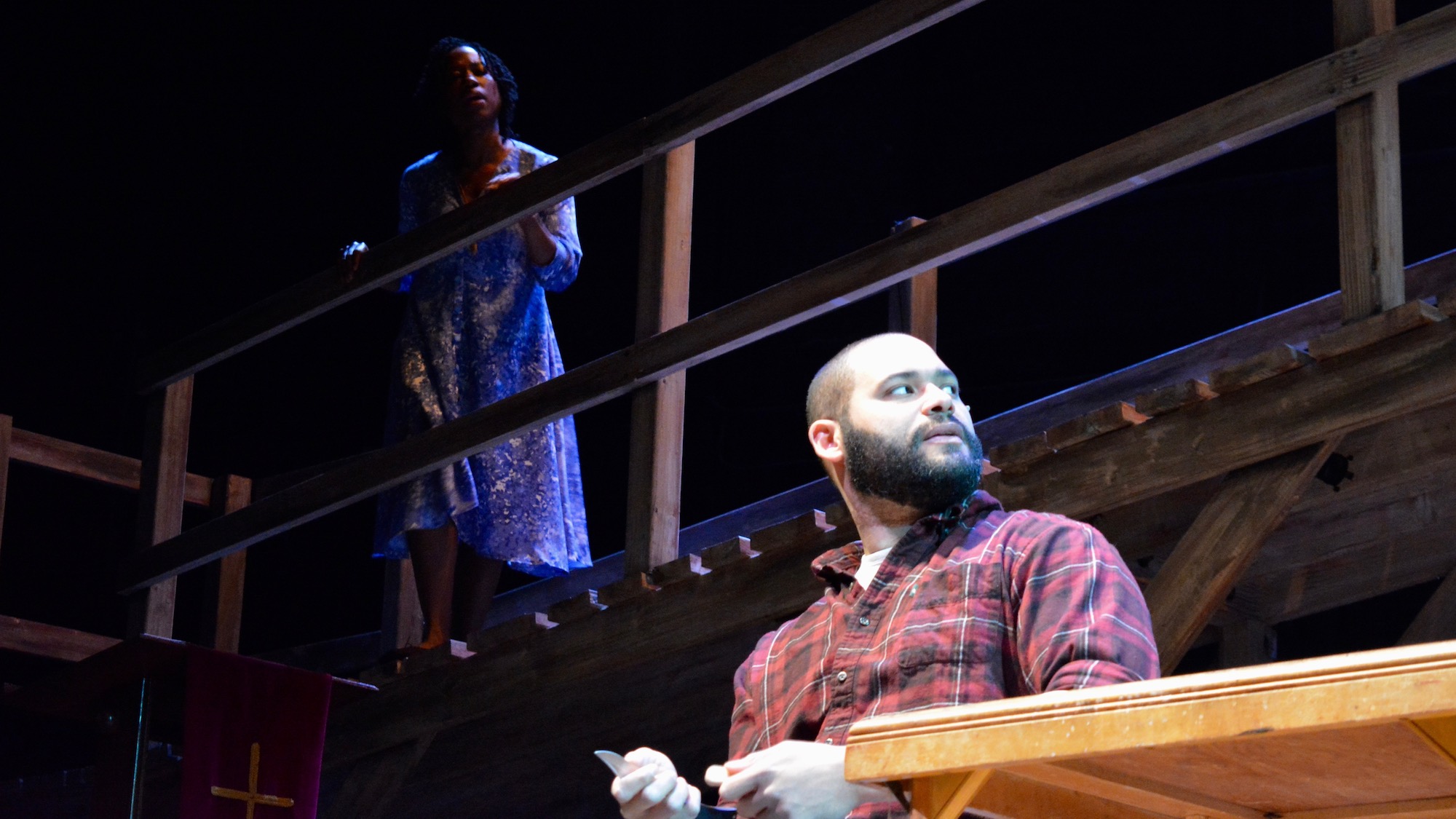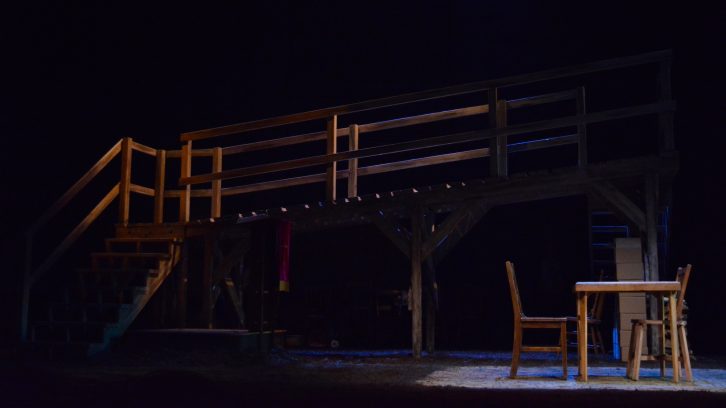Theatre
Neptune hosts first African-Nova Scotian playwright in 20 years
Shauntay Grant’s The Bridge begins its run at Neptune Theatre later this week

caption
Actors Sophia Walker and Jacob Sampson run through the opening act of The Bridge.The play begins and the stage is lit by a single light; it highlights a man sitting at a table, carving a wooden cross with a pocket knife.
The mood changes as the chorus begins singing the African-American spiritual There is a balm in Gilead. A woman appears in a blue dress, wearing a wooden cross around her neck.
Behind them, lightly lit, is a bridge that spans the stage, connecting the lives of two brothers. The chorus stands beneath the bridge, singing softly about a sinful soul as the play begins.
Set in rural Nova Scotia, The Bridge explores the relationship between the two brothers who have been torn apart by lies, secrecy and shame.
Written by former Halifax poet laureate and author Shauntay Grant, The Bridge uses poetry and gospel hymns to tell the story. Opening Friday night is the co-production between Neptune and 2b Theatre Company and Grant’s playwriting debut.
The Bridge is the first play written by an African-Nova Scotian for Neptune since George Boyd’s Gideon’s Blues in 1996. The Bridge features a seven member all-black cast, making it one of Neptune’s largest productions.
Director Anthony Black looks forward to seeing the audience’s reaction.
“I think one of the great privileges of doing this play was learning the history of the black Nova Scotian culture, or at least part of it,” he said.

caption
The set of Neptune’s The Bridge.The story takes inspiration from Grant’s own upbringing in Halifax, showcasing the language, culture and community of her youth. The goal, however, was to have the play speak to African-Nova Scotians in all communities.
“One thing that was challenging, for I think a lot of us, was trying to nail the dialect. Because so much of the cast was from all over the place, and some were from different communities in Nova Scotia. We really tried to stay away from having a specific dialect,” said the play’s female lead, Sophia Walker. “We wanted this to be a story that all black Nova Scotians could see in their own community.”
Walker considers Grant’s writing, in general, to be a service to the African-Nova Scotian community.
“She’s getting to tell some of her own story, and the story of all of us, which is so important as a person of colour,” she said.
Jacob Sampson, the male lead, grew up in the Annapolis Valley with the majority of his family coming from Beechville. He said The Bridge plays an important part in highlighting his community’s history and culture.
“Black theatre is really on the up and up all the time here in Nova Scotia, and having the play written by a local and involving a local story, and being set in a place that if you’re from one of these communities, like I am, could be home. It’s hugely important,” he said. “I’m hugely proud to be a part of it.”
Black agrees The Bridge is important for all people.
“I don’t have the experience that a lot of this story echoes being that I’m white, but I do think that this story is able to go beyond race and relate to all people,” he said. “I think it touched something really profound in all of us.”


B
Beverly Alferink